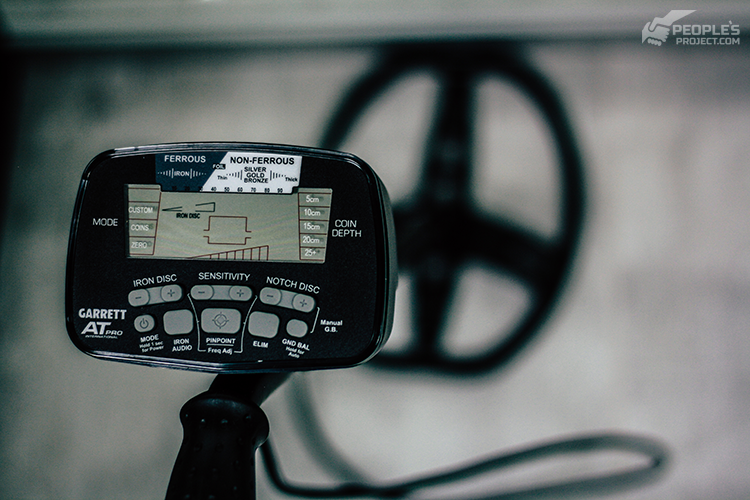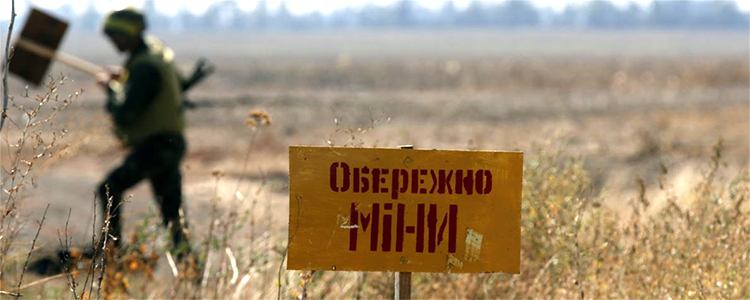It’s been for quite a long period of time for which People’s Project supports various units of the Ukrainian army including sappers. This time, it looks as usual, we are transferring two powerful and sensible metal detectors for the same sapper unit. These will enable the specialists in de-mining to carefully examine and clear the recently liberated territories thus saving lives of people from hidden death. Yes, we mean it: literally, saving from real death. Now we would like to dwell on the problem a bit and present you an opinion aired by a specialist. Watch a small story about the moments of their day-to-day experience that may cost them their life.

According to the data provided by international organizations, today Ukraine has outpaced the notorious leaders like Sudan, Iraq and Mali in the number of minefields. Overcoming the consequences of just one year of the war usually takes five years of de-mining activities and engineering work. This means that for the next twenty-five years minimum Donbas will continue to hear explosions and civilians will fall victims to the deadly landmines.
Marine sappers, putting their lives at risk on daily basis, remove lethal findings. They are armed with quite outdated feelers, climbing hooks, and heavy-weight Soviet era metal detectors known for their unreliability and inaccuracy of results. And this is not just fantasy, it’s their everyday experience of close encounter with death.
A step; another step.
Slow down, we’re not in a hurry.
A step.
Another step.
The vision is focused on a thin twig. He clears it off the grass.
Another step.
Here it is!
A thin brown wire looking like a single shiny hair, can hardly be detected in the thick foliage.
A hand up which means the STOP signal for the group.
We are going forward along the tripwire. It had been tied to a twitch. To the left, slowly. If there are pressure mines on the way, this means bad business. They can hardly be detected without a metal detector.
The trigger is popping out of the soil like a bobber.
Right, this is an OZM one installed as a tripwire. Moreover, seems it was an amateur who laid it.
What can be done here? Passing over looks too long and dangerous.
We’ll try to neutralize it.
Well, godspeed.
The group is given the LAY DOWN signal. Taking his sapper bag up on the chest, he kneels down on the right knee. Down to the work.
There’s the MUV-4 fuze here. That’s bad. Mines that incorporate this type of ignitor are prohibited to disarm. Still, there are no rules without an exception.
The sapper removes a piece of a soft wire out of his field bag, then snakes it through the hoop of a pin and gently ties it up to the body of a fuse; tightens it up.
One spare millimeter to the right, and death is inevitable.
Then he bites off the tripwire: there are no other traps on it, checked.
The pilers’ flashlight mode on; the MUV gets unscrewed.
Obviously, this piece was installed by an amateur: the fuze goes out easily.
Attaching a long wire to the central hoop and moving back.
Pulling it out. Nice that the soils is soft.
The landmine is popping out of the land like a cork out of the bottle.
Waiting for a few minutes, and the prize is ready to be taken out.
This is what an ordinary day of a sapper looks like.

Our next transfer will consist of the necessities required by the Marine Infantry sapper unit. These guys have been working there to protect the vicinities of Mariupol adjacent to the frontline; to secure local people from injuries and killing by the landmines laid by Russian occupiers. That is why we ask you for assistance, dear friends. As long as the money needed for purchase of necessary equipment, has been raised mostly at the expense of charitable donations made by the citizens who understand the value of life and those who practice compassion. Dear friends, please join in.
Obviously enough, this is quite a noble and essential activity at the moment, don’t you think?




















































